The Covid-19 pandemic is unlikely to alleviate demands for more democratic governance, respect for human rights, equality, an end to austerity, and meaningful steps to combat climate change and corruption, said Clément Voule (above), the United Nations Special Rapporteur on the rights to freedom of peaceful assembly and of association.
Indeed, “if anything, the economic downturn caused by the crisis, combined with financial measures that enhance inequality, will only serve to exacerbate underlying causes,” he stressed in a statement today.
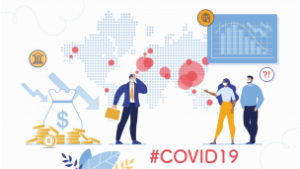 The COVID-19 pandemic is posing unprecedented challenges to human rights and democratic norms, raising some observers to insist that, in the words of Canada’s Globe and Mail, you don’t defeat the virus by bleeding democracy.
The COVID-19 pandemic is posing unprecedented challenges to human rights and democratic norms, raising some observers to insist that, in the words of Canada’s Globe and Mail, you don’t defeat the virus by bleeding democracy.
“No country or government can solve the crisis alone; civil society organizations should be seen as strategic partners in the fight against the pandemic,” he said. “I am thus concerned due to the information I have received from online consultations with civil society around the world, suggesting several worrying trends and limitations, including on civil society’s ability to support an effective response.”
A case in point….
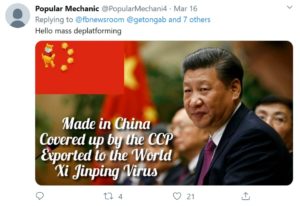 China’s Communist regime has rolled out an app to help relax lockdown measures across the country in an attempt to reopen their economy, but concerns are rising about whether this temporary measure will become a permanent fixture, ABC News reports.
China’s Communist regime has rolled out an app to help relax lockdown measures across the country in an attempt to reopen their economy, but concerns are rising about whether this temporary measure will become a permanent fixture, ABC News reports.
“This is viewed as scary stuff from a human rights perspective,” said Sophie Richardson, China director at Human Rights Watch. “[It is] yet another way to gather information about people to potentially use it against them in ways which there’s no legal basis.”
In each of the over 70 countries in which the National Democratic Institute (NDI) currently works, its teams are finding ways to adapt to ensure partners receive the support they need to protect their political rights and develop democratic practice in their countries, says NDI president Derek Mitchell. That includes:
- helping town hall meetings go virtual in Armenia;
- assisting partners to move youth engagement work online in Jordan;
- developing new digital outreach for Libya’s public health initiative;
- monitoring elections in Mali to maintain electoral integrity and public health while voting;
- conducting weekly public opinion surveys on the government’s COVID-19 response in Ukraine;
- drawing on lessons from the 2014 Ebola outbreak to highlight the crucial role of civil society in the fight against COVID-19; and
- completing a documentary about what democracies can learn in the COVID-19 era from Taiwan’s fight against Chinese disinformation.
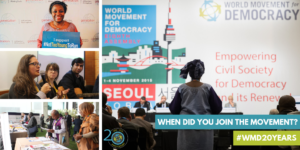 On April 2, the World Movement for Democracy’s Secretariat hosted an online discussion with Special Rapporteur Voule on freedom of assembly and association with some 40 civil society activists from Hong Kong, China (in exile), Azerbaijan, India, Iran (in exile), Guatemala, Brazil, Croatia, Russia, Bosnia, Mexico, and Kyrgyzstan to gauge the impact on civic space of governments’ response to COVID-19.
On April 2, the World Movement for Democracy’s Secretariat hosted an online discussion with Special Rapporteur Voule on freedom of assembly and association with some 40 civil society activists from Hong Kong, China (in exile), Azerbaijan, India, Iran (in exile), Guatemala, Brazil, Croatia, Russia, Bosnia, Mexico, and Kyrgyzstan to gauge the impact on civic space of governments’ response to COVID-19.
In the face of the current pandemic, the Special Rapporteur has emphasized ten key principles:
First: ensuring that new legal measures respect human rights. It is vital that both the process and the substance of any new measures passed be in compliance with human rights obligations. Consultations with civil society should take place, if possible, before new measures are adopted. ….
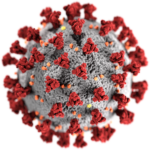 Second: ensuring that the public health emergency is not used as a pretext for rights infringements. It is imperative the crisis not be used as a pretext to suppress rights in general or the rights to freedom of peaceful assembly and of association in particular. …
Second: ensuring that the public health emergency is not used as a pretext for rights infringements. It is imperative the crisis not be used as a pretext to suppress rights in general or the rights to freedom of peaceful assembly and of association in particular. …
Third: democracy cannot be indefinitely postponed. The Special Rapporteur recognizes that designing appropriate electoral approaches in the context of the current global pandemic is complex, and that there are no easy solutions….
Fourth: ensuring inclusive participation. Active citizenship is key in times of crisis. Civil society must be regarded as an essential partner of governments in responding to the present crisis, in terms of helping to frame inclusive policies, disseminating information, building shared and cooperative approaches, and providing social support to vulnerable communities…
Fifth: guaranteeing freedom of association and assembly online. The rights to freedom of peaceful assembly and of association apply online just as they do offline. In this time when physical assemblies are restricted, it is all the more necessary that access to and use of the internet be ensured. …….
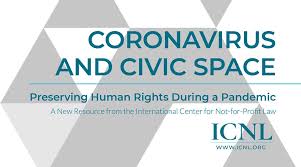 Sixth: protecting workplace rights to freedom of association and assembly. The right to freedom of association extends to the right to form labor unions and other forms of association within the workplace, and the right to freedom of peaceful assembly extends to the right to strike. ….
Sixth: protecting workplace rights to freedom of association and assembly. The right to freedom of association extends to the right to form labor unions and other forms of association within the workplace, and the right to freedom of peaceful assembly extends to the right to strike. ….
Seventh: freedom of expression must be ensured. The right of civil society actors, including journalists and human rights defenders, to freely seek, receive and impart ideas and information, whether concerning the crisis and its management or other subjects, must be ensured. …
 Eighth: civil society’s participation in multilateral institutions must be secured. The UN and other multilateral institutions should take steps to ensure civil society organizations can continue to participate in all policy decisions, including those related to the Covid-19 response..
Eighth: civil society’s participation in multilateral institutions must be secured. The UN and other multilateral institutions should take steps to ensure civil society organizations can continue to participate in all policy decisions, including those related to the Covid-19 response..
Ninth: international solidarity is needed more than ever. Financial limitations are sharply constraining civil society’s ability to contribute to the response to the Covid-19 crisis…
Tenth: future implications of Covid-19 and responding to popular calls for reform…..RTWT







